AMD Ryzen 7 5800X
Two minute review
Test system specs
This is the system we used to test desktop CPU performance:
Intel 10th Gen:
CPU Cooler: Cooler Master Masterliquid 360P Silver Edition
Graphics card: Nvidia GeForce RTX 2080 Ti
RAM: 32GB HyperX Predator RGB @ 3,000MHz
Motherboard: MSI MEG Z490 Godlike
SSD: ADATA XPG SX8200 Pro @ 1TB
Power Supply: Phanteks RevoltX 1200
Case: Praxis Wetbench
Intel 9th Gen:
CPU Cooler: Cooler Master Masterliquid 360P Silver Edition
Graphics card: Nvidia GeForce RTX 2080 Ti
RAM: 32GB HyperX Predator RGB @ 3,000MHz
Motherboard: MSI MEG Z390 ACE
SSD: ADATA XPG SX8200 Pro @ 1TB
Power Supply: Phanteks RevoltX 1200
Case: Praxis Wetbench
AMD 3rd Gen:
CPU Cooler: Cooler Master Masterliquid 360P Silver Edition Graphics card: Nvidia GeForce RTX 2080 Ti
RAM: 32GB HyperX Predator RGB @ 3,000MHz Motherboard: X570 Aorus Master
SSD: ADATA XPG SX8200 Pro @ 1TB
Power Supply: Phanteks RevoltX 1200
Case: Praxis Wetbench
AMD Ryzen 9 5900X and Ryzen 7 5800X:
CPU Cooler: Cooler Master Masterliquid 360P Silver Edition Graphics card: Nvidia GeForce RTX 2080 Ti
RAM: 32GB HyperX Predator RGB @ 3,000MHz Motherboard: AsRock X570 Taichi
SSD: ADATA XPG SX8200 Pro @ 1TB
Power Supply: Corsair AX1000
The AMD Ryzen 7 5800X, more than anything, symbolizes AMD's complete domination of the mainstream desktop processor market, even more than something like the Ryzen 9 5900X. With the 8 cores and 16 threads packed in this processor, along with much stronger single-core performance, this is a processor that will likely show up in a huge amount of gaming PCs over the next year or so.
This is entirely by design, too. For years, Intel has held the reigns on the gaming processor market, as that company has always prioritized the high clock speeds that PC games crave. However, due to a massive redesign of its architecture, AMD has been able to shoot past Intel pretty much across the board, delivering the most meaningful upgrade to gaming CPU performance we've seen in years.
While Zen 3 is based on the same 7nm manufacturing process as Zen 2, AMD has completely redesigned the architecture from the ground up. In one of the most impactful changes in this redesign, AMD changed the Core Die (CCD) design to only allow for one Core Complex per die. To make up for this, each CCX now has 8 cores, up from 4 cores per CCX on Zen 2.
This greatly reduces latency between cores, but more importantly it allows every core direct access to 32MB of L3 cache, which is incredibly important for gaming performance.
However, this redesign comes with a higher price tag. The AMD Ryzen 7 5800X is $449 (about £340, AU$620), up from the $399 (£349, AU$645) of the Ryzen 7 3800X. That's the same price increase experienced across the board gen-on-gen with Ryzen 5000, it's just disappointing that pricing saw an increase at all. However it's not hard to see why AMD did this, as Intel doesn't really have anything that can even compete right now. The closest competitor, the Intel Core i7-10700K is $399 (£379, AU$609), and while we haven't tested that specific processor, we're confident the Ryzen 7 5800X handily beats it across the board.
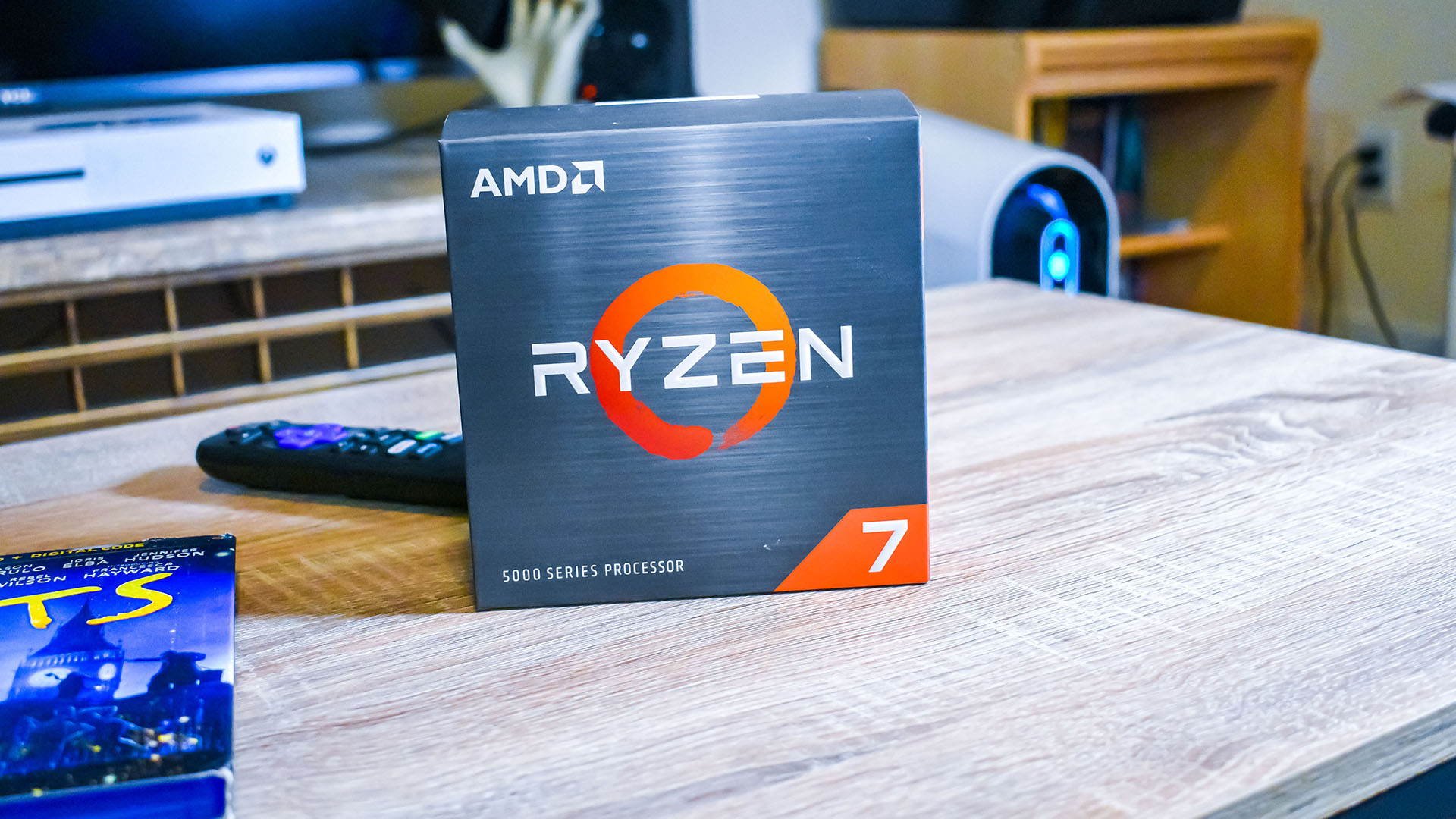
A quick note
Before we dive into performance, we need to get one thing out of the way. Due to the incredibly busy season, we weren't able to retest all the CPUs in time for this review. Instead, we're using the results from the last time we tested all of these processors, for the Ryzen 3000XT reviews back in May 2020. We will retest everything in the near future and update the review. We don't expect results to change too much. Oh, and our testing motherboard broke and we're using a new power supply – fun, right?
At least you won't have to buy a new motherboard. AMD isn't even releasing a new chipset this time around, which means if you already have an X570 Motherboard you already have you already have a compatible board – you just need to update the BIOS.
For that money, you're getting an 8 core, 16 thread processor, that can boost up to 4.7GHz, with a total of 32MB of L3 Cache. That's very similar to the specs of the Ryzen 7 3800X, which has the same amount of cores and cache, but only boosts up to 4.5GHz. That 200MHz difference doesn't seem like a lot, but it's important to note that through the new improvements, especially giving each core direct access to all the cache, IPC (instructions per clock) performance has increased by up to 39% in games, according to AMD.
However, while performance gets a massive bump, AMD has decided to leave the included Wraith cooler out of the package this time around. This means you're going to have to add the price of an aftermarket cooler to your purchase. This is ultimately a net positive, however, as the processor can get up to 87°C, even with a 360mm AIO cooler.
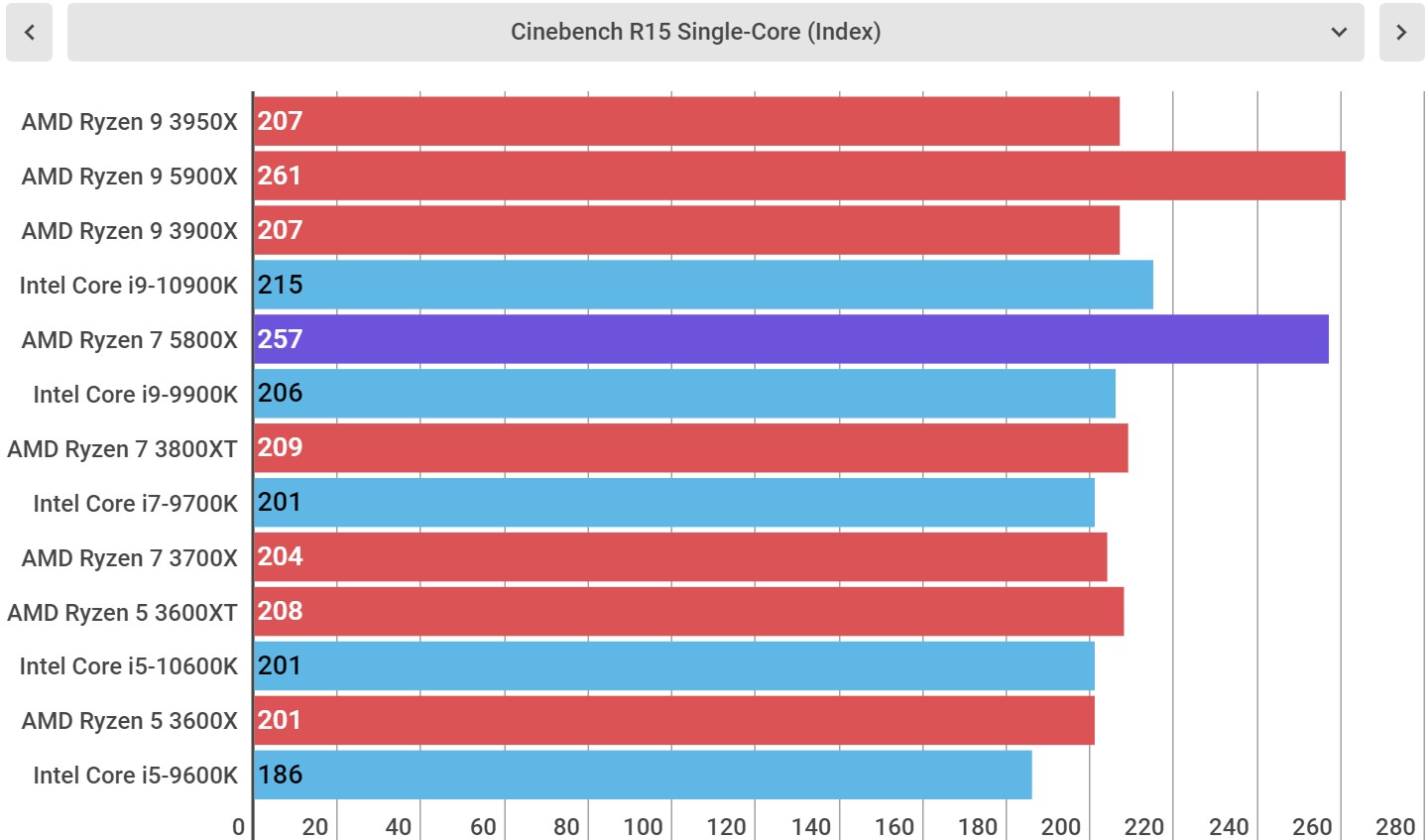
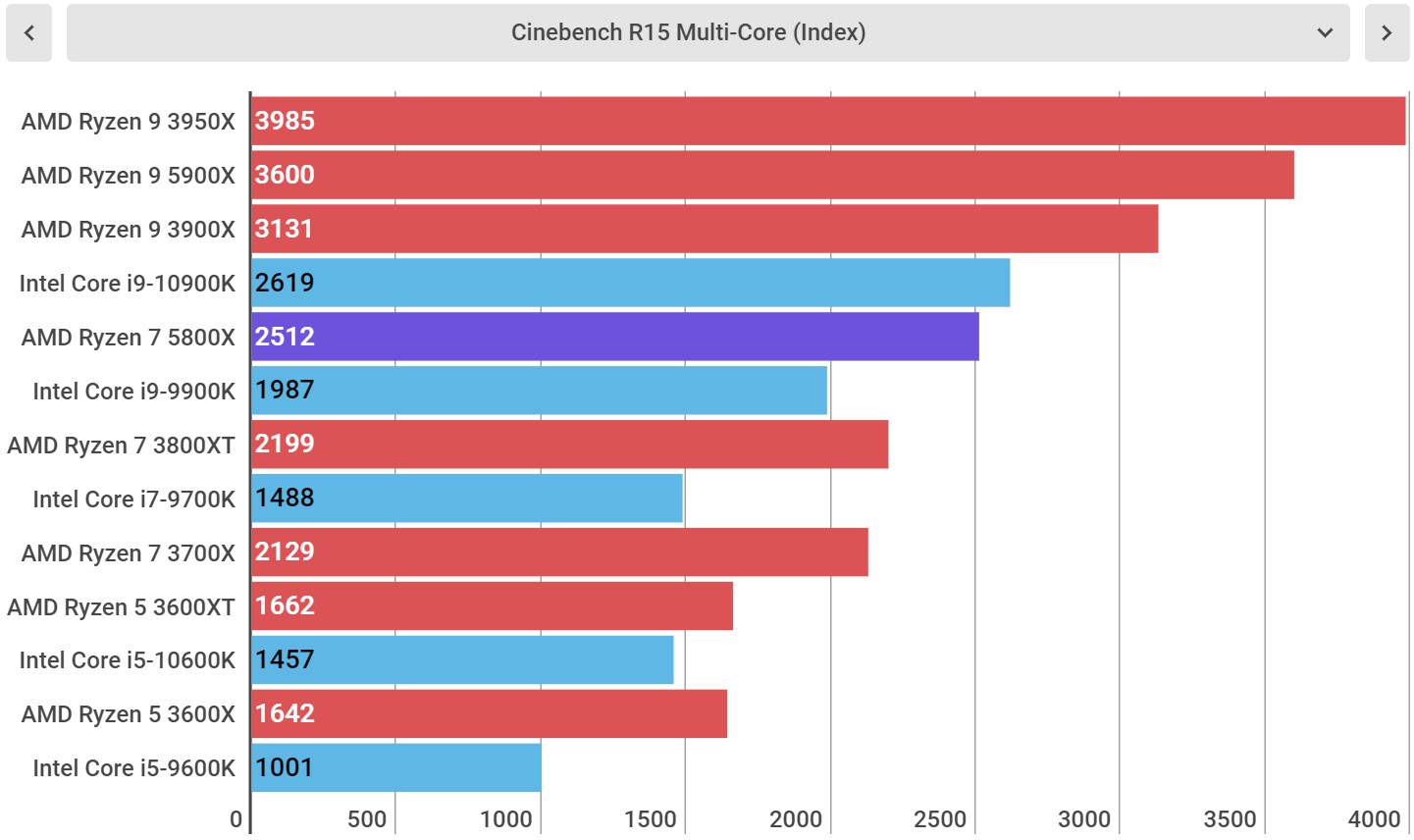
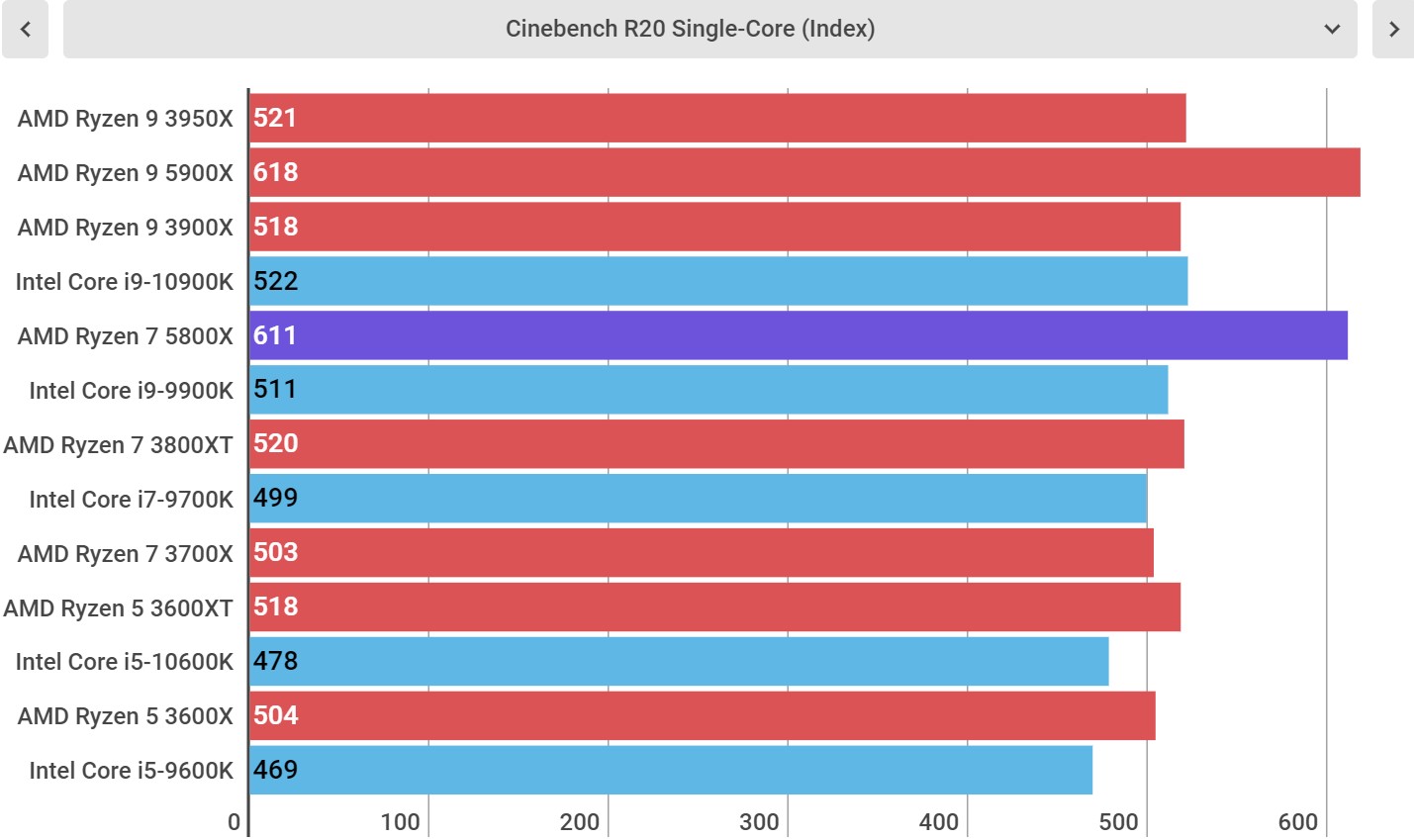
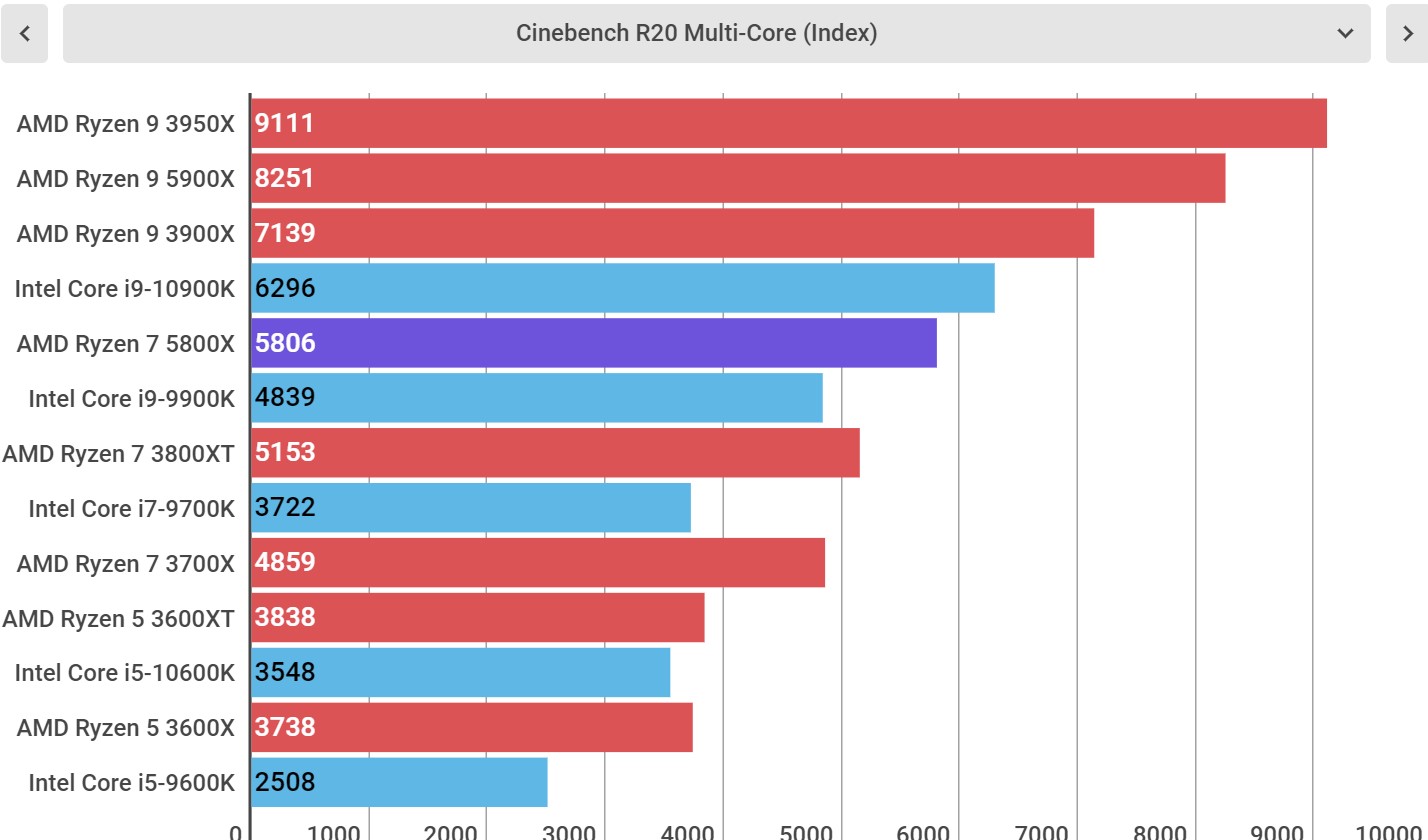
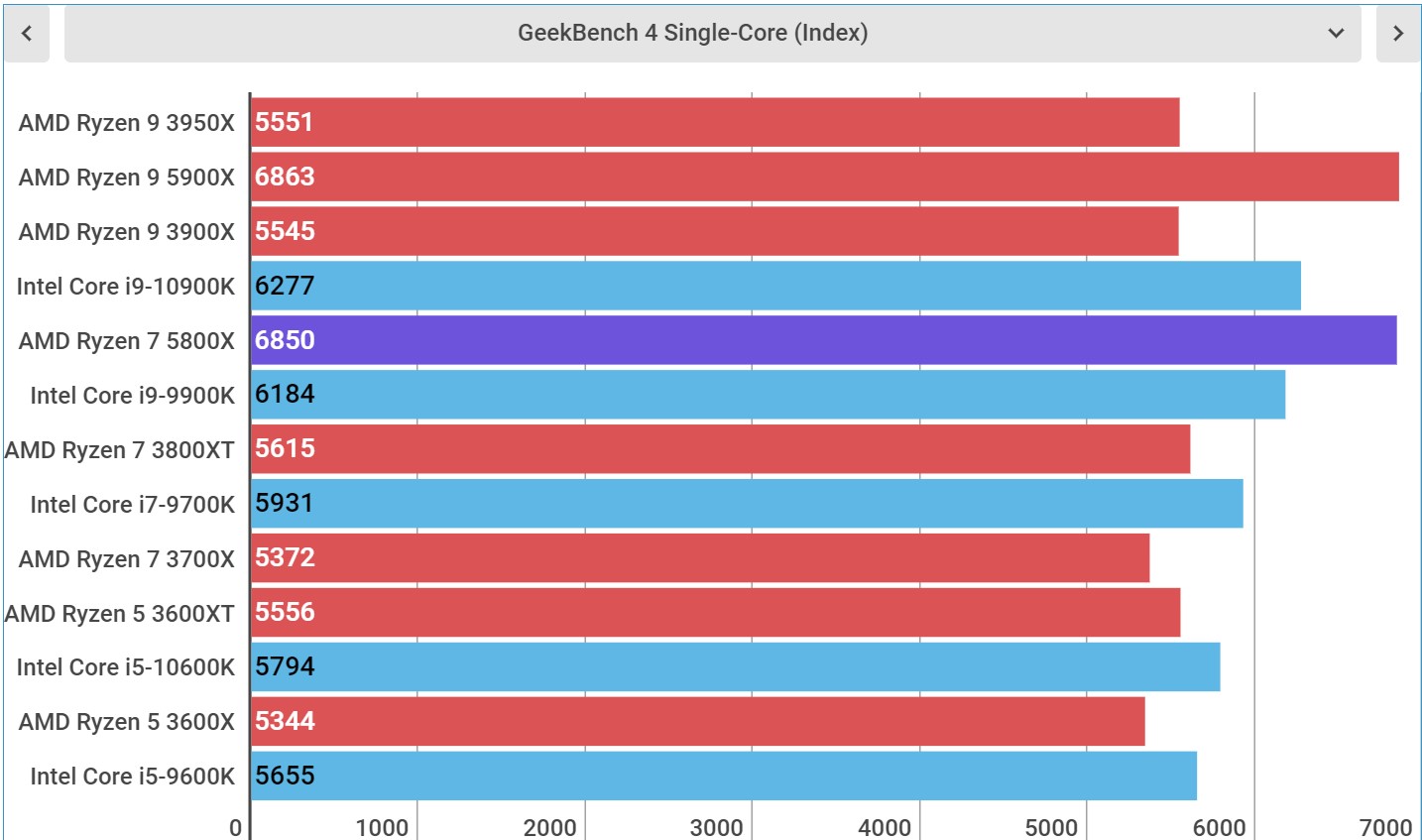

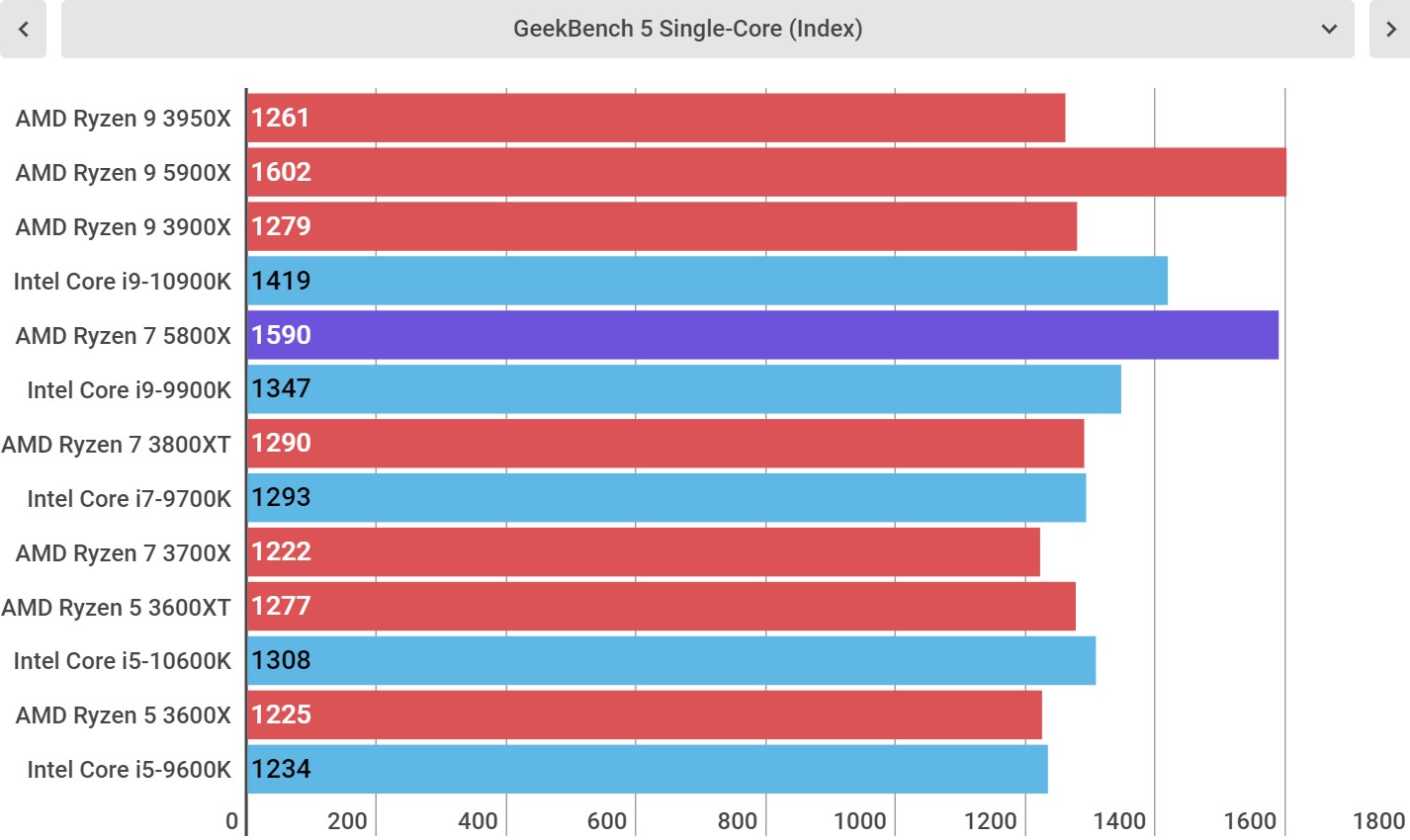
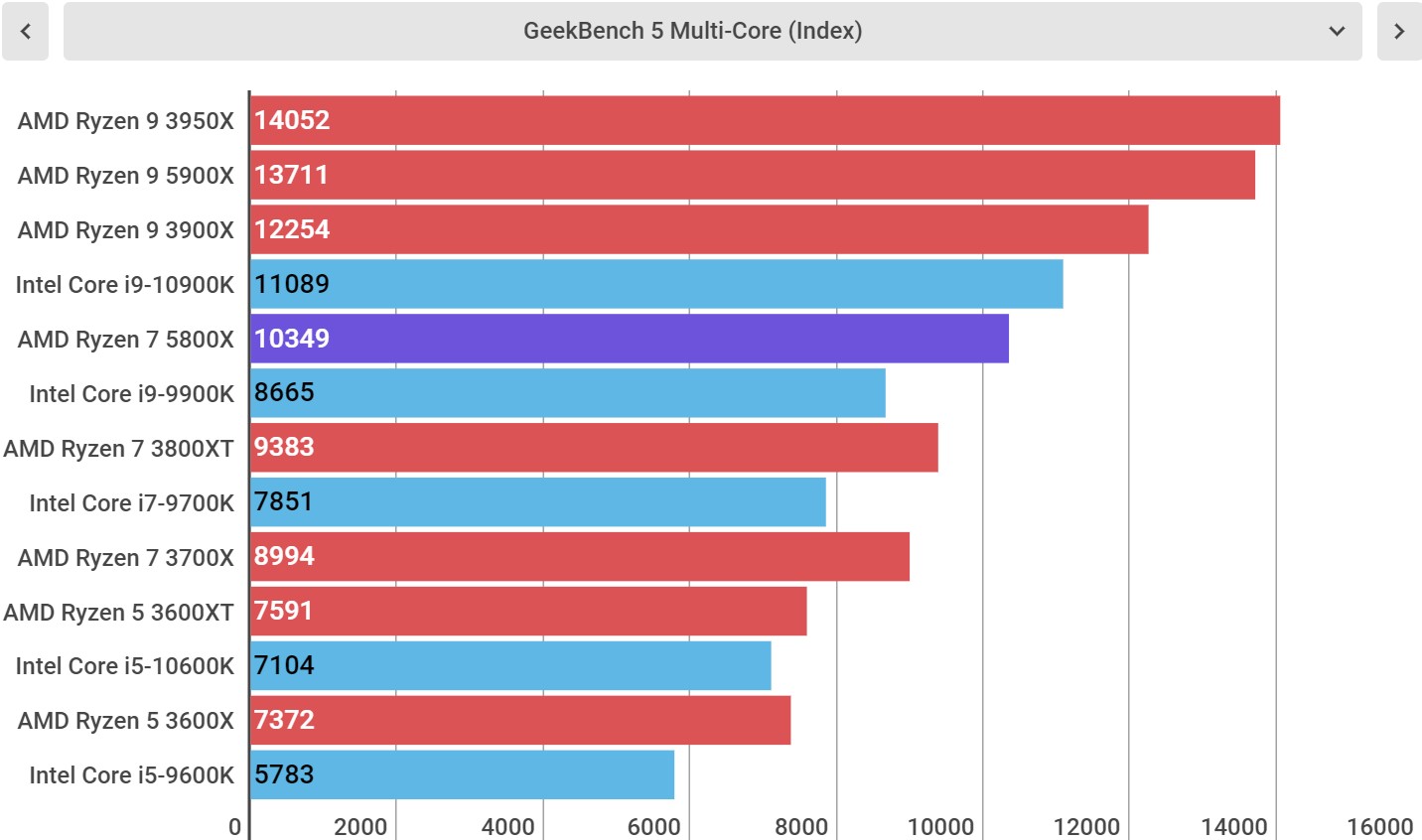
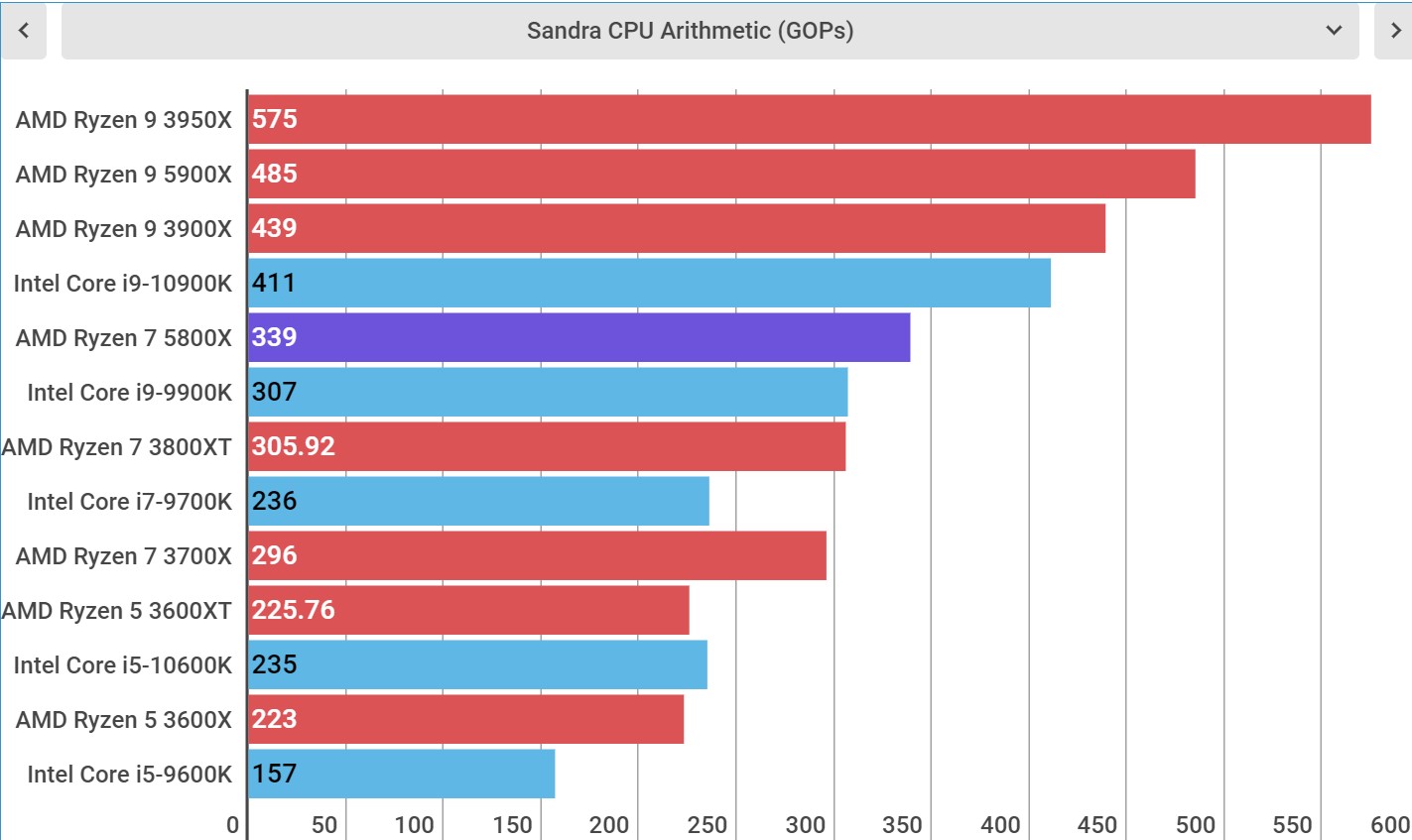
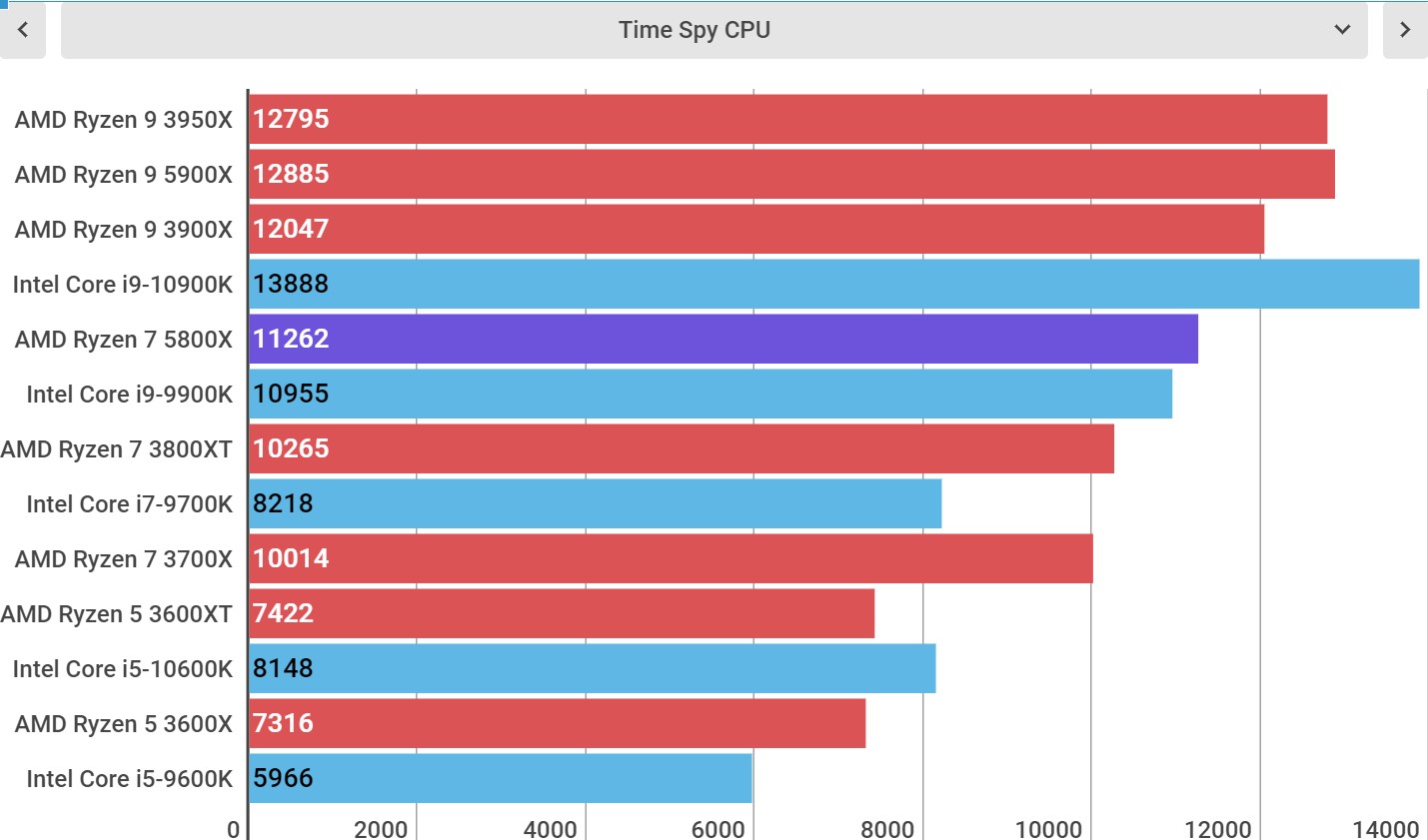
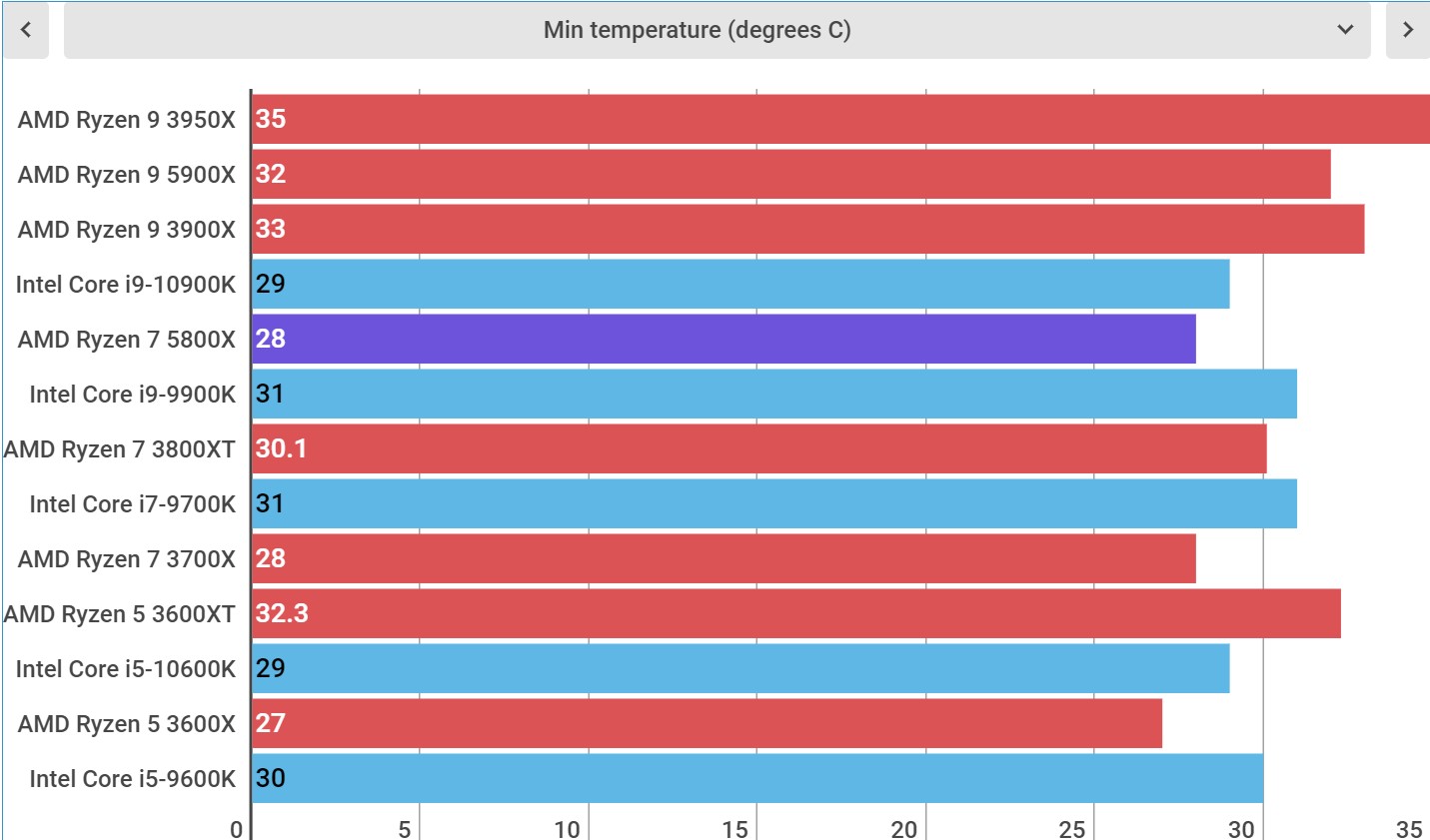
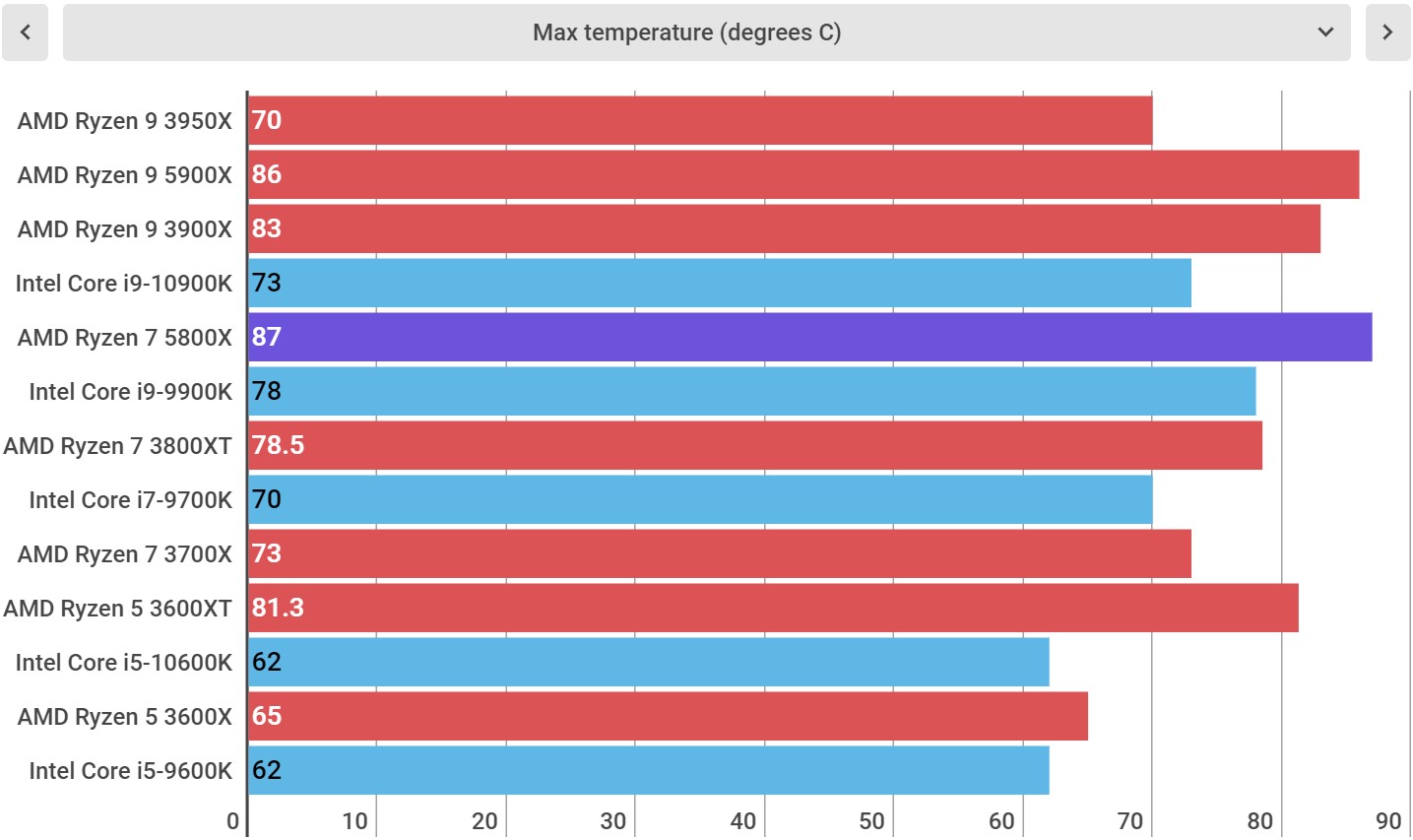
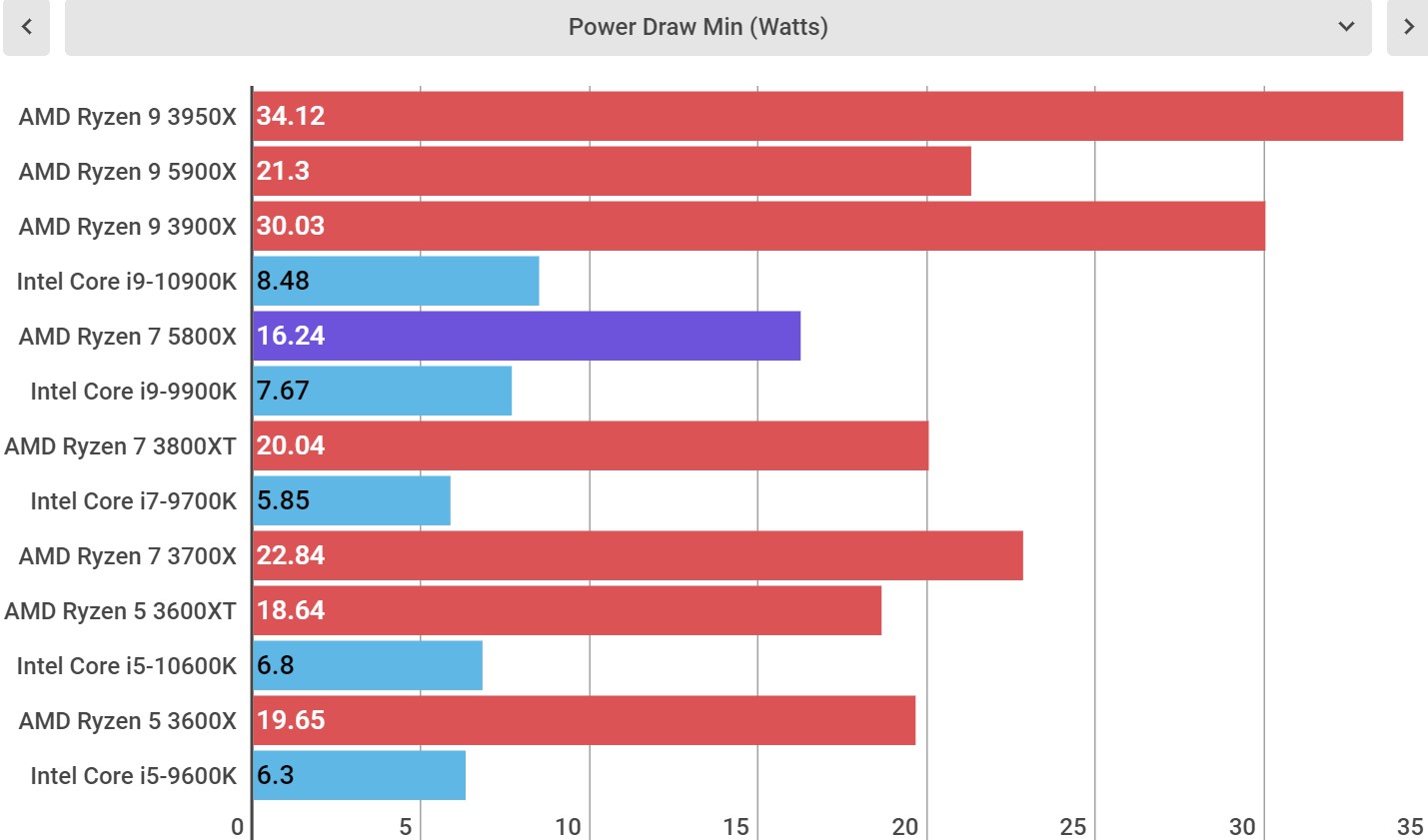
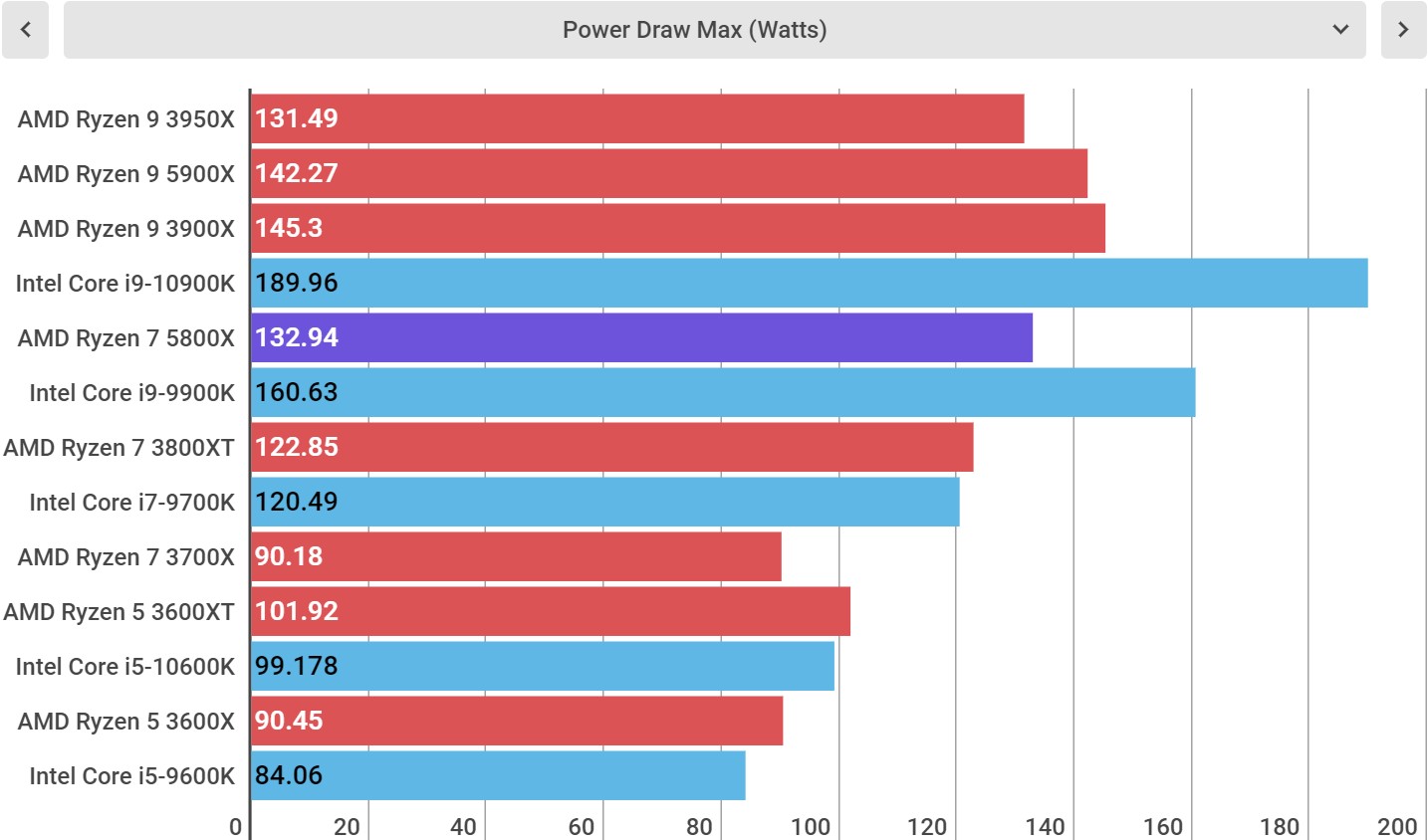
While frequency itself only gets a minor bump up, single-core performance is massively improved across our entire testing suite. And, of course, because single-core performance is better, multi-core performance is also massively improved.
Cinebench R20 is a flawed test, but it is useful to show the raw differential between processors, and in that test the Ryzen 7 5800X was around 18% faster in single-core performance and 12% faster in multi-core than the Ryzen 7 3800XT. More impressive, however is that it was 19% faster than the Intel Core i9-9900K in single core and 20% faster in multi-core. And that's a processor with both a higher boost clock and the same amount of cores and threads.
Where AMD is really trying to push this processor, however, is in games. And, here, the AMD Ryzen 7 5800X beats out even the Intel Core i9-10900K.
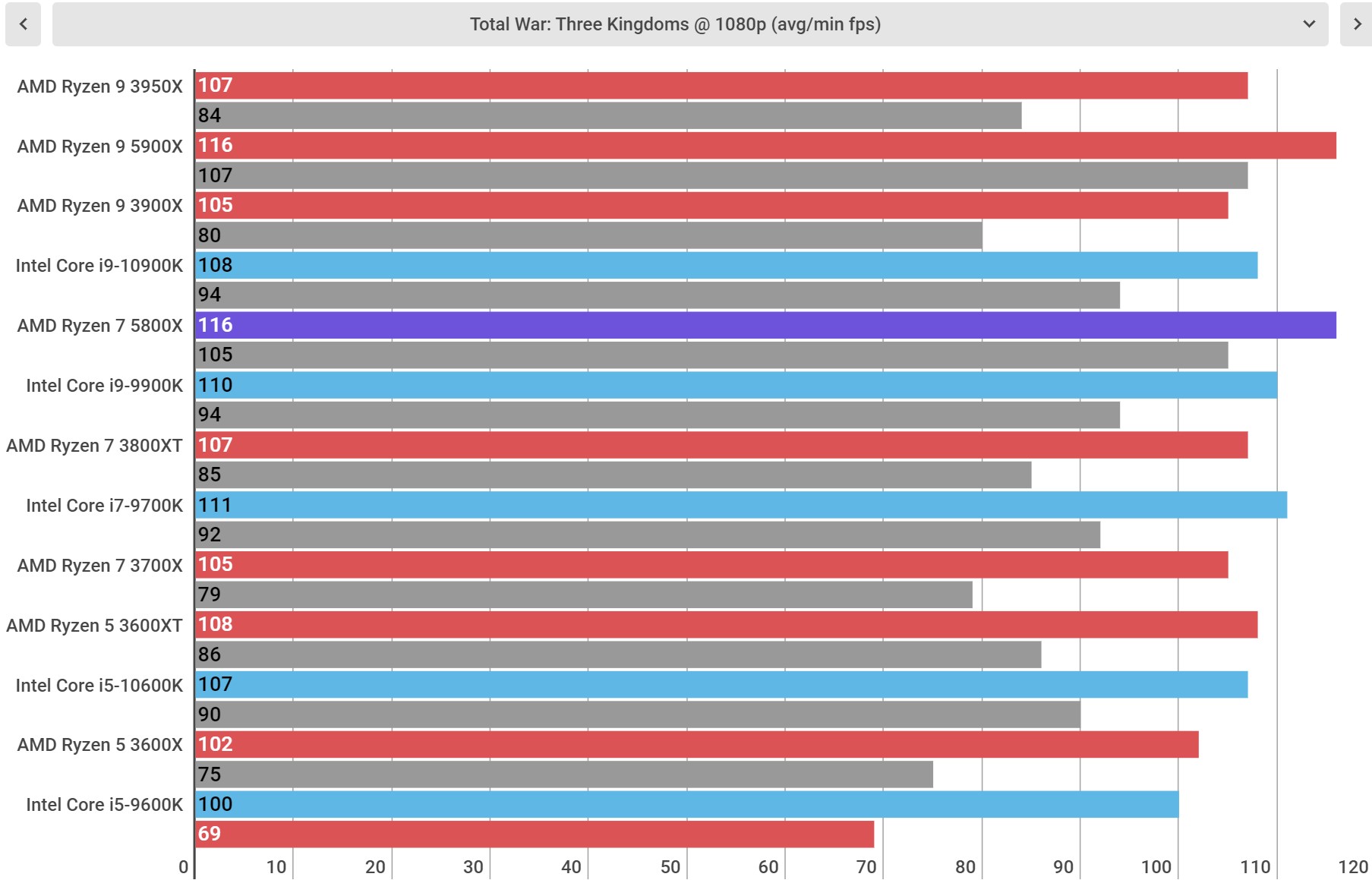
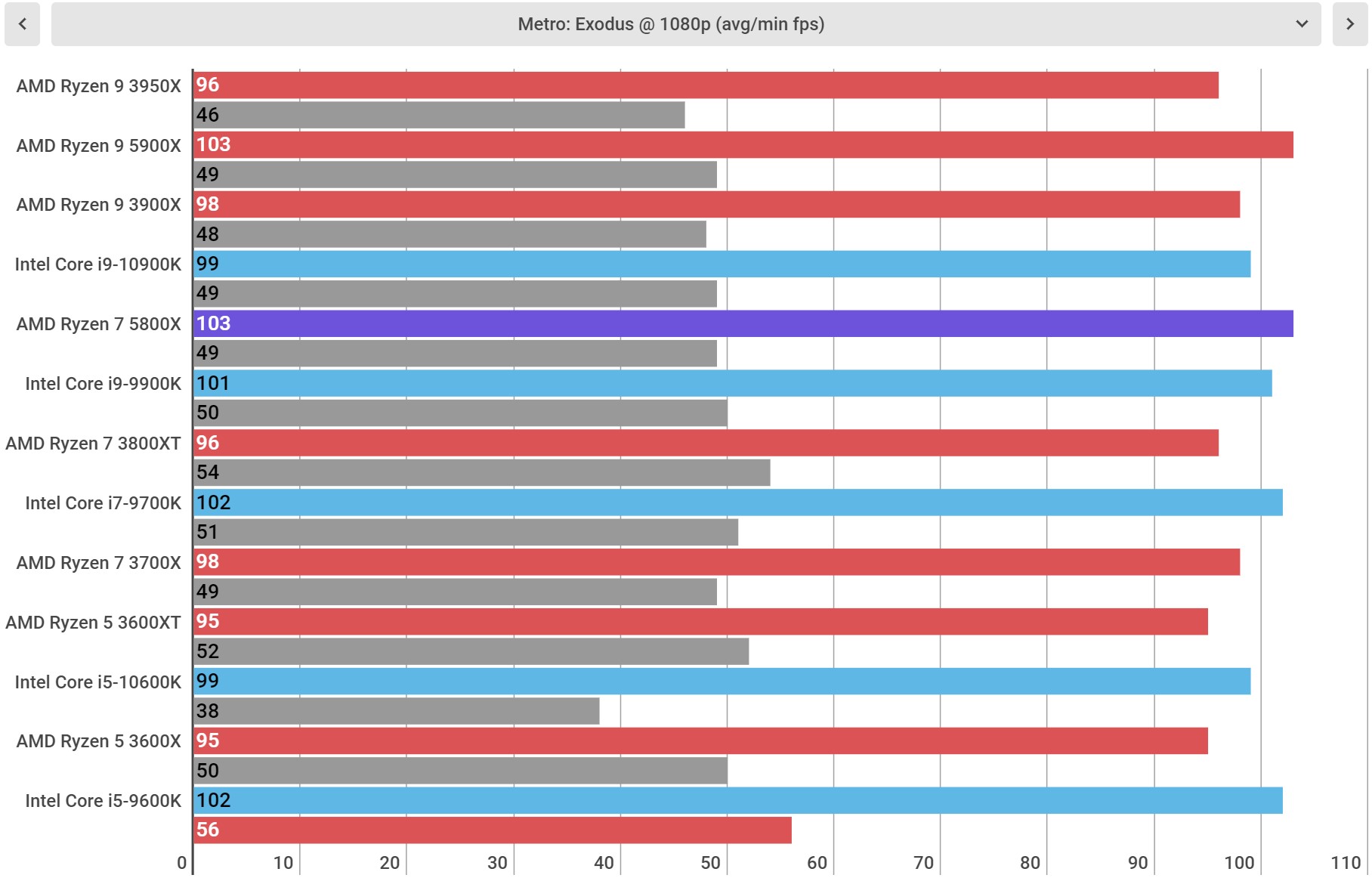
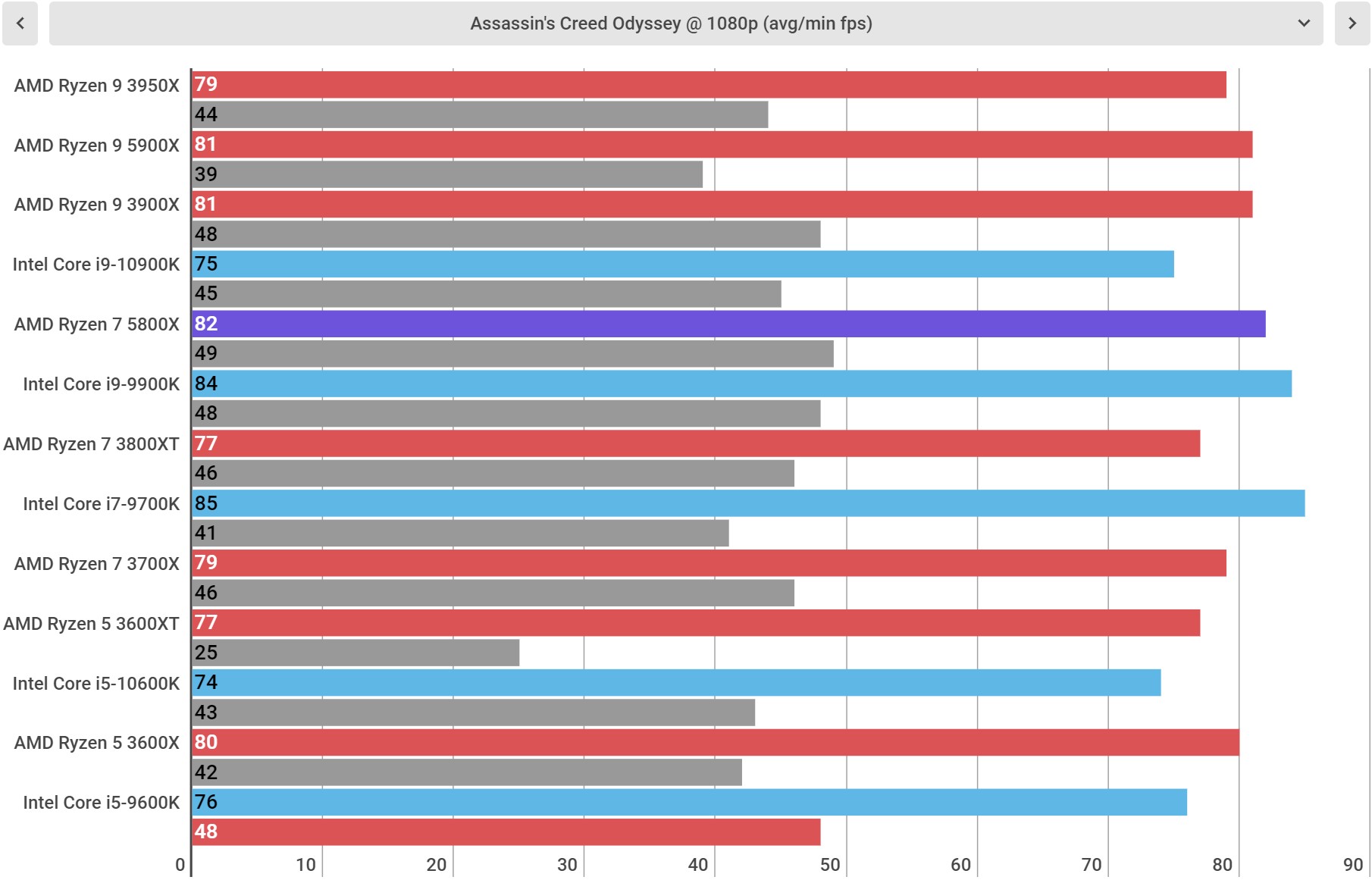
Even in Total War: Three Kingdoms, a processor that's optimized for Intel hardware, the AMD Ryzen 7 5800X beats out the 10900K by 7%. That's a single-digit increase but it's still a significant fps increase for a simple processor change.
Because it's more affordable than the Ryzen 9 5900X while delivering basically the same level of gaming performance at 1080p, this is easily the best gaming processor for a vast majority of people.
The fact that it delivers virtually the same single-core performance, while still offering more than enough cores and threads for creative workloads, means that gamers will get the same performance, and anyone that wants to branch into creative work will still have enough horsepower to get it done efficiently.
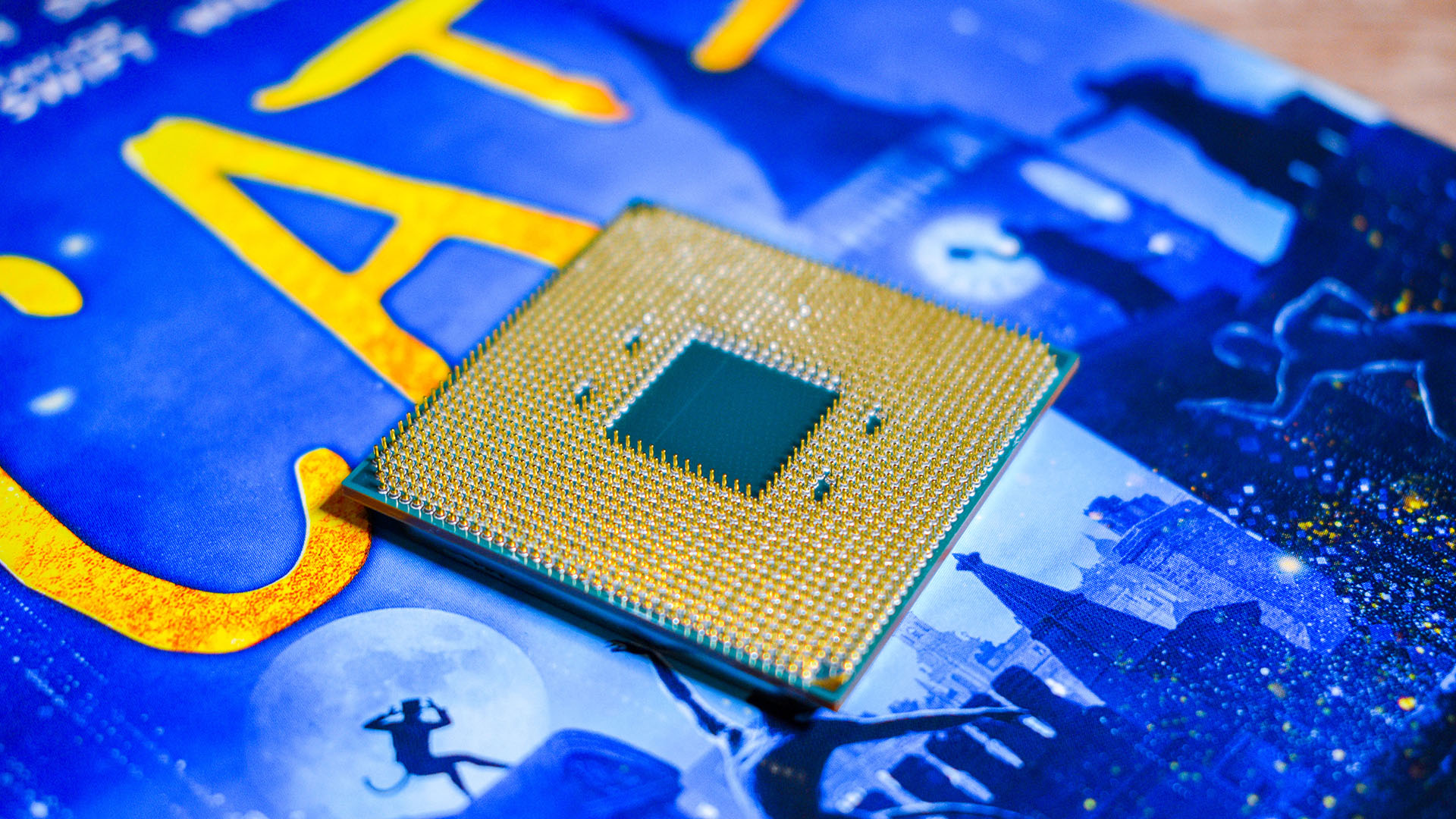
Buy it if...
You want the best processor for gaming
If a vast majority of what you're doing with your PC is playing games, this processor will enable the strongest performance, even with the most powerful graphics cards on the market.
You want to dabble in creative work
While the highlight this time around is the increase in single-core performance, multi-core performance also gets a nice boost. With 8 cores and 16 threads
Don't buy it if...
You have a Ryzen 3000 chip and you don't only play games
While the gaming performance increase is enough to justify upgrading to the Ryzen 7 5800X, you won't get the same return for creative applications.
You're on a budget
The price of the AMD Ryzen 7 5800X has Ryzen by around 10%, which means the already high price of this tier of processor is even more expensive. Budget builders are still going to get a lot more mileage out of their money with a Ryzen 3000 processor.
Comments
Post a Comment